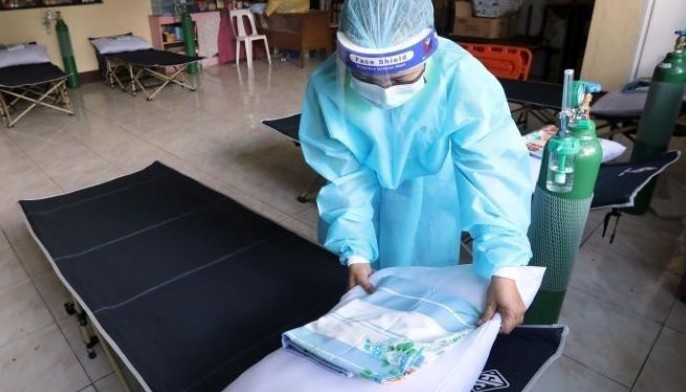More than a decade ago, Republic Act No. 10069 was passed declaring May 7th of every year as the “Health Workers Day”, as recognition to thousands of Filipino healthcare workers that serve as the backbone of the country's health system.
The said law also aims to promote the rights and welfare, as well as to enhance the sense of worth and dignity of every personnel, whether under medical/allied health professional or administrative/support services, employed either in hospitals, sanitaria, health infirmaries, health centers, rural health units, barangay health stations, or clinics, regardless of their employment status.
Last year, the president issued Proclamation 976 and declared 2020 as the “Year of Filipino Health Workers” to recognize their heroism and self-compassion who selflessly and tirelessly provide essential, quality and critical care to individuals, families and groups, even in the face of uncertainty and vulnerability amid the COVID-19 pandemic.
These mere recognitions place our healthcare workers in the pedestal and regarded as our modern-day heroes. They are the heroes who are exposed, not only to the risk of COVID-19 infection, but also to constant stress, burnout, stigma, discrimination and even violence. They are the heroes who are burdened with the responsibility of lifting the country out of the current crisis.
Amid the renewed surge of cases, they still labored tirelessly to protect patients’ lives and health, often with insufficient means to fully protect their own. Just like any other employees, health workers are expecting to receive the proper compensation and benefits in return for their invaluable services.
And like us, they have human needs and they have dependents to support. Especially now, when prices of prime commodities are being pushed higher by pandemic induced inflation, additional monetary compensation, which are not always commensurate with the rendered services, would go a long way even just for spartan day-to-day needs.
But how come our public health workers still need to beg for a dialogue to humbly air their appeals to facilitate what is rightfully theirs? It is unacceptable that these heroes are further burdened by the government’s failure to promptly release their promised benefits, such as the special risk allowances, performance bonuses and hazard pays.
Unbelievably but undeniably, some of these were already pending for more than two years.
It is hard to understand why a certain agency will have problems, when all of these personnel benefits and allowances are mandated by laws and being funded in the annual budget, as approved in the current year’s General Appropriations Act.
In the first place, there should be no delays, unless there are negligence on the part of the officials who are entrusted to manage the finances of the agencies.
Let us not forget that last year, several senators expressed their dismay upon learning that the sickness and death benefit of health workers affected with severe COVID-19 disease, which was specifically indicated in the Bayanihan I Act, has not been released after several months in the pandemic response.
The alleged shortcoming prompted the Office of the Ombudsman to take action in late October 2020 and ordered the preventive suspension of five key officials of the Department of Health for six months without pay.
According to the Ombudsman, the officials were suspended to prevent them from influencing of interfering the probe on the issue, since they were charged with gross neglect of duty, insufficiency and incompetence in the performance of official duties. This should have been a lesson, not only for those in DOH, but also to other agencies that personnel welfare is taken seriously and with urgency.
It has been observed for several years that our health professionals, particularly nurses, midwives and doctors, chose to migrate in other countries to earn decent wages and give better lives to their families. We cannot blame our fellow “kababayans” if they chose not to serve in their own country in search for greener pastures in other countries.
This only reflects the socio-political and economic situation which has been a cycle here in the Philippines. Sadly, the repercussion is that in these times of crises and emergencies we do not have enough healthcare workforce to man our health facilities.
A few months ago, the labor department welcomed the idea to offer thousands of healthcare workers, mostly nurses to take jobs in the United Kingdom and Germany if these two countries will agree to donate COVID-19 vaccines.
This idea of nurses in exchange of vaccines could be good news for some but might have a negative effect to our overwhelmed personnel who are manning our healthcare facilities.
In fact, a few days ago, the speaker of the House of Representatives urged the DOH to tap unregistered nurses as health workers just to supplement the current work force of the country.
For our healthcare workers braving the deadly pandemic as they perform their duty to the country, they deserve better than commemorative recognition. Our pandemic heroes should be protected and justly compensated.
The government, particularly the DOH should take immediate action and give what is due to our healthcare heroes.
Alvin Manalansan is a non-resident fellow of think tank Stratbase ADR Institute and a convenor of CitizenWatch Philippines.


